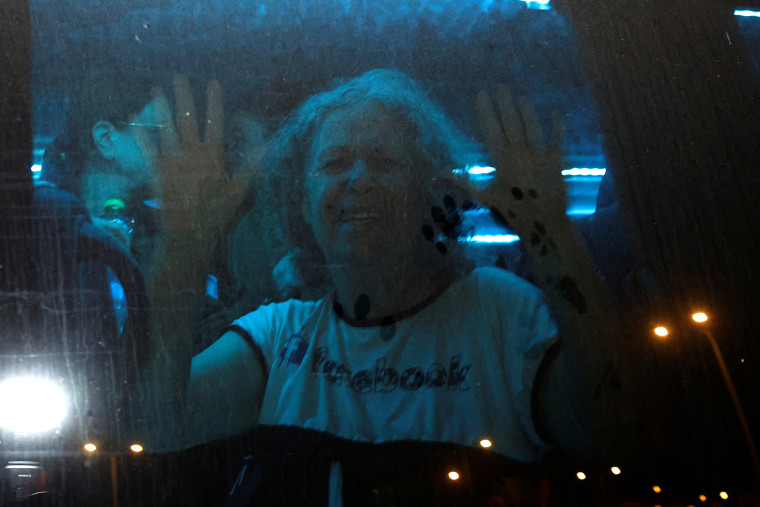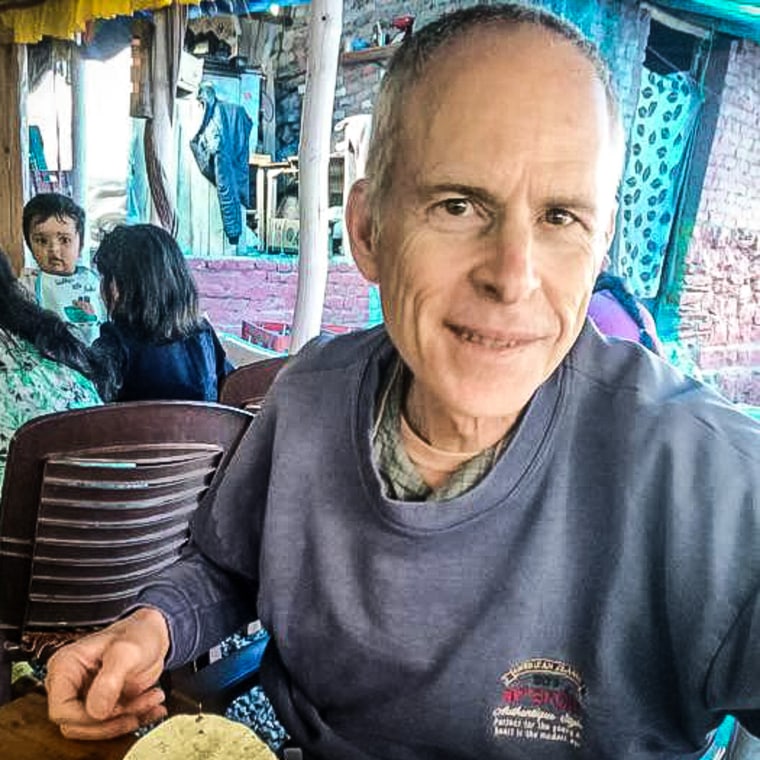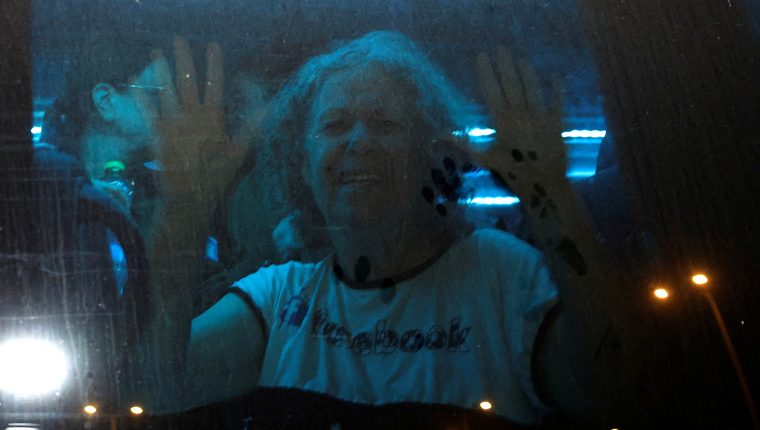An Israeli woman who was released by Hamas after weeks in captivity has accused Prime Minister Benjamin Netanyahu of having “forgotten” the remaining hostages in Gaza, including her American husband.
In an exclusive interview with NBC News’ Molly Hunter on Thursday, former hostage Aviva Siegel said she believes Netanyahu is prioritizing his own political survival and his bid to crush Hamas over efforts to return the hostages.
“I think that Bibi Netanyahu is thinking about himself more than thinking about us,” Siegel, 62, said.
Siegel, who was released in November after 51 days in captivity, said she wanted Netanyahu to “stop the war” and focus on bringing her husband, Keith Siegel, an American Israeli, back “home as soon as possible.”
But, she said, “I think that Netanyahu has forgotten about Keith and forgotten to be human and bring the human people back.”

The Siegels, who lived on the Kfar Aza kibbutz, just 3 miles from the border with Gaza, were among the roughly 240 people who were taken hostage on Oct. 7 after Hamas launched a surprise attack on Israel that left around 1,200 dead. The deadliest terrorist attack in Israel’s history then touched off a war in Gaza that has left nearly 30,000 people dead, according to Palestinian authorities.
Siegel said she also fears for the safety of the remaining 130 hostages thought to be still held by Hamas, including the 19 women, who she worries could “come back pregnant.”
She described one incident that made her fear girls and women in Hamas’ captivity could be at risk.
Siegel, who has testified in front of the Knesset about her time in captivity, said she and her husband were moved at least 13 times while in Gaza and were held along with several young women during that time.
“One of the days, one of the girls went to the bathroom,” Siegel said. “And when she came back I could see by her face that something had happened.”
Siegel said she hugged the young woman, even though “I knew I wasn’t allowed to.”
“She looked at me and said, ‘He touched me,’” Siegel said, her voice cracking. “And that was a moment that I’ll never, ever forget because we didn’t think that it would happen. And it happened, and we were scared that it will happen again.”

There is a body of evidence, primarily from the Israel Defense Forces and Israeli officials, of gender-based crimes carried out by Hamas on Oct. 7, which suggests that dozens of Israeli women were raped, sexually abused or mutilated during the attack.
Little is known about the treatment of hostages still held captive in the war-torn enclave, however.
Hamas did not immediately respond to request for comment on Siegel’s allegations, but the militants have repeatedly and vehemently denied that members sexually assaulted captives.
Siegel also became emotional when she recounted how Hamas militants had “humiliated” her 64-year-old husband.
In one instance, Siegel says, their captors took her husband to the shower and forced him to shave his entire body. “And he was so humiliated that when he came out he said he didn’t know what to do with himself because he felt like nobody, like nothing,” she said.
During her captivity, Siegel said they sometimes went days without eating and were, at times, confined to stifling tunnels where they could barely breathe. She said their captors spoke English to them and Arabic with each other. She said they were always menacing.
Once, after what she believes was an Israeli bombing raid, Siegel said they were taken outside “for a tour to show us what Israel is doing to them for us to feel sorry for them.”
“It just made me feel that I’m in such a dangerous place,” she said.
On the day before she was freed on Nov. 26, as part of a temporary cease-fire between Hamas and Israel, brokered by Qatar and the U.S., Siegel sensed something was afoot.
Their Hamas captors gave her husband a pair of long pants and fed them lunch. They were then driven to another location where Siegel was told she was being sent back to Israel but not her husband.
Siegel said she was distraught, but her husband insisted that she go. She said her husband “was scared to tell” their captors that he was American because he feared they’d let him go first.
“I bent down to him, I hugged him and I said, ‘You’ll be strong for me,’” Siegel said.
Then she was driven to where she and a Thai hostage spent a sleepless night.
The next day, she said, they were driven to a checkpoint through a hostile crowd that was banging on their car and “screaming ‘Allahu Akbar’ and shooting in the air.”
“I was sure that it would be my last minutes of my life,” she said.
Then, Siegel said, she saw an Israeli soldier and knew she was safe. But those initial feelings were quickly overwhelmed by dread and fears that she might never see her husband alive again.
“It was a lot of happiness with a lot of sadness,” she said.
Keith Siegel, a North Carolina-raised father and grandfather, has now been in Hamas captivity for 140 days.
“I want to believe Keith is still alive,” Siegel said. “But I know what can happen there and I’m very worried about Keith.”
Source: | This article originally belongs to Nbcnews.com










